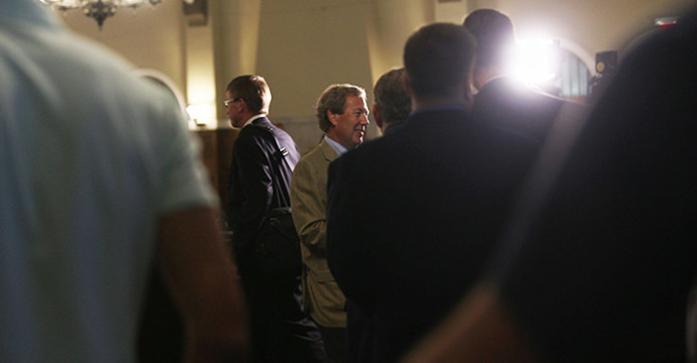You have recently published a message for why you want to be president of the University of Iowa, but I remain among the skeptics. I am still unconvinced that you understand the complexity of a modern American research university. My skepticism comes down to three areas: teaching, the university hospitals, and fundraising.
Teaching: Above all else, teaching is something you have highlighted in your public statements. Yes, we as academics agree that educating our students is vital to our work. As Raymond Lim noted in his Oct. 12 guest opinion, one of the main missions of a university is the transmission of knowledge. Whatever the impact of our research, we know the impact we have on our students, and we are quite cognizant of the longer-term impact as our students become neighbors, employees, and leaders in the future. That said, we are also aware of the resources that the university commits to teaching. According to the fiscal 2016 budget, $705.1 million is devoted to the general education fund, or 19 percent of the total university budget of $3.710 billion. Once you remove the student aid expenditure of $102.9 million, that comes down to 17 percent. You do not raise a university’s international profile from great to greater by devoting only 17 percent of your resources to what you believe is one of your main missions, regardless of the business. The remaining 83 percent highlights the complexity of the university’s multiple, and similarly important, missions.
University Hospitals: The hospitals have budgeted revenue of $1.238 billion for fiscal 2016, or one-third of the overall university budget. They are an extremely important component of the University of Iowa, and that revenue number points to why you have been asked about the hospitals in public forums. The budget numbers are public, and from the news we know you met with the UIHC leadership earlier this Summer, so the significance of the hospitals is not new information to you. And yet in your recent message for why you came to Iowa, you fail to mention one of our major missions as an institution. We have yet to hear your vision for the university as a whole.
Fundraising: The role of president at a modern American research university has often been caricatured as chief fundraiser, but there is truth in that caricature. Much of a university’s budget is already pre-committed. Many donors limit their endowment contributions to support specific missions. The cost to maintain existing property, plant, and equipment is for the most part an unavoidable commitment as the quality of our facilities impacts student and faculty recruitment and retention. Additionally, research grants are often tied to the researcher with the necessary skillset, and are not tied to the institution, so that revenue is money the university would lose should a researcher leave for another institution. The amount of the university budget that is flexible and effectively under direct control of a university administration is smaller than most people think. Businesses may have a lot of flexibility to cast off what they deem to be dead weight to pursue new opportunities. But universities, be they public or private, do not have that same budgetary flexibility. Fundraising is how the current generation of academic leaders have been able to work around budget constraints, because the main mechanism a university president (or dean) has to implement their personal vision for an institution is to show up with new money brought in through their fundraising efforts. You have yet to address your role as the main fundraiser for the University of Iowa.
As a community, we still need assurance from you that you do understand the breadth of what is expected of you as president of the University of Iowa. Skepticism does not mean we are unwilling to engage. What it does mean is we do hold you to the high standard necessary for the leader of our university to succeed.
Sincerely,
David Harman
Ph.D. candidate,
marketing



